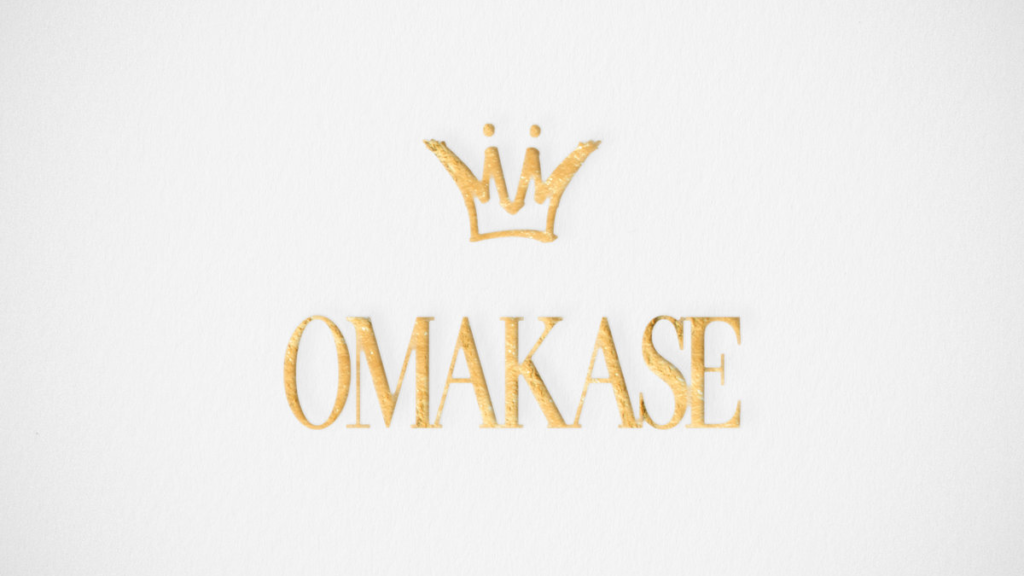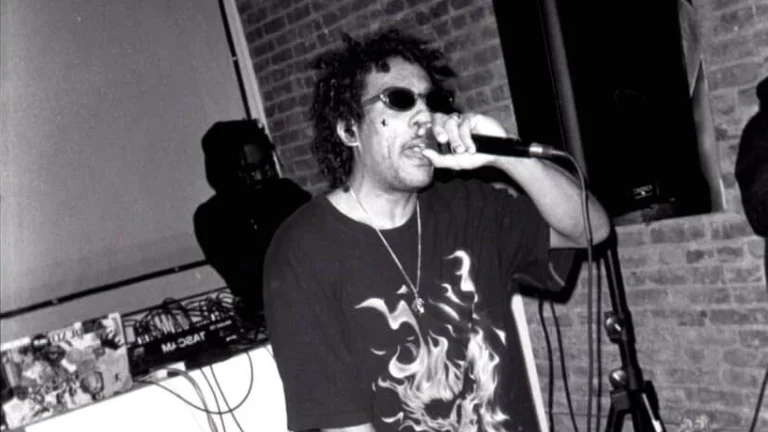Omakase is the latest compilation album from the talents of Mello Music Group, an independent record label that has brought forth significant talents such as Apollo Brown, Open Mike Eagle, Oddisee, Homeboy Sandman, and Quelle Chris over its 15 years of releasing music. Omakase is a Japanese phrase, typically used regarding sushi, meaning to ‘trust the chef’ or to leave the design of the order up to them. Here, Mello Music Group use the term to show that they have the talents available and the curational sense to be left to their own devices. The listener can rest assured, quality will be delivered.
What stands out immediately on Omakase is the variety within the label – their ingredients, so to speak. Despite the fact that much of the music on the album works within a similar genre – abstract hip-hop – there is a wonderful diversity within the sound itself. The first two rap songs, placed after the gentle, slightly depressive bedroom pop opener ‘Lemon Tree’ by Chris Keys, are both good listens but they work very differently. They highlight Mello Music Group’s impressive variety from the beginning of the record, a variety which is maintained throughout the album but first makes itself apparent here.
YUNGMORPHEUS’s ‘The Price’ is slick, soulful and stylised much like a ‘90s boom bap track with a slow yet jingly beat. YUNGMORPHEUS’s flow is as good as ever and his lyrics are engaging thanks to their unpredictability. Denmark Vessey follows ‘The Price’ with ‘Marionette Flex,’ one of the major highlights of the album. With strong features from Nolan and Fly Anakin, this is an abrasive, energetic hip-hop banger with Vessey chasing down the jumpy, capricious beat. It’s a bewildering and hectic instrumental, but all three rappers manage to flow across it seamlessly with charisma. The sudden shift from YUNGMORPHEUS’ more relaxed approach to Vessey’s fast-paced, punchy hit suggests to the listener that they can’t expect Omakase to focus on only one sound – it’s an open-minded record full of creativity and diversity. Immediately, there are two contrasting flavors on the record, only to be expanded on as the record continues and comes to include jazz, industrial hip-hop, abstract rap, boom-bap and more.
Another stand-out is Paradime’s posse track ‘LXG ‘11,’ with features from Danny Brown, Marv Won, and others. Everybody on this group track brings their all to it, with the sequencing of the track seeing that the energy builds gradually to a breaking point. The track is full of grim horrorcore lines played for laughs, and there’s a clear joy in each rapper to deliver each one. Their attitude is confident, showing as much mania as the beat with its tapping drums and dizzying electronic loop.
Kamaal Williams’s ‘Planetarium Funk Drill’ gives the rapping a break, fully earning its eight minute listen with spacy saxophone riffs, snappy drums and smooth, soulful bass. Williams merges electronic elements with the otherwise jazz-centric track, giving the song additional flavoring and texture. It will chase its sound in one direction, then return to its most basic elements and find another sound to focus on, exploring its sonic ideas with an improvisational feel.
Apollo Brown’s ‘Three Piece’ is also a strong instrumental, and its placement after the aforementioned intensity of Paradime’s ‘LXG ‘11’ is perfect. With its textured vocal samples and percussion, the album is slowed down and a tone is set for the following sequence of more relaxed, mellow tracks. The sequencing of Omakase makes it much more than your typical label collective album as it focuses on creating a series of different moods. In doing so, the album opens itself up and captures the full width of Mello Music Group’s talents. To be able to shift in such a way, from a series of fast-paced rap songs to much gentler hip-hop and then to jazz, is an accessible and immersive way to portray the strength of Mello Music Group’s catalog of artists.
Marlowe—the duo consisting of producer L’Orange and Solemn Brigham—merges singing and rapping on ‘Last Reserve,’ where Brigham discusses trying to help his family through his art, but also feeling himself focusing too much on trying to grow rather than enjoying his process of creating music and growing as an artist (“What we eating will depend on what the mail say”). While the song is beautiful in both sound and concept, its honesty and vulnerability is its most touching component.
‘Doing Well’ by Namir Blade carries a similar style and mood, with a gorgeous soul sample looped and an instrumental which prioritizes strings and bass over its distinctive soft drums. The glossiness of the sound is well suited to the ecstasy of the hook, on which Blade sings of “doing well, f*ck your life!’. His joy is apparent, and his singing makes that joy palpable for the listener.
There is a wonderfully persuasive sense of being musical underdogs seen across Omakase. Perhaps it is best summed up by Vessey’s ‘Marionette Flex,’ which sees rapper Nolan say that, “N***as wanna see us finished, we’re just gettin’ started.” That’s showcased on Omakase, a carefully sequenced and cautiously curated collective record with a slew of great tracks, showing some of the best of what Mello Music Group has to offer. If Mello Music Group is our chef, they can certainly be trusted to make a tasteful order left to their own devices. Each artist adds another ingredient, culminating in an order with flavor, variation and class.





